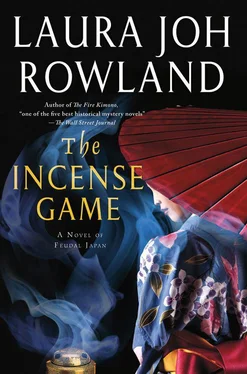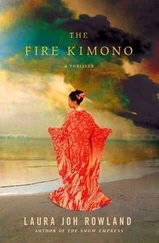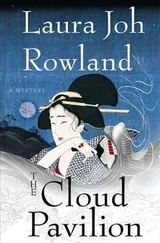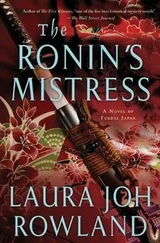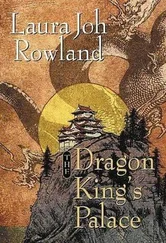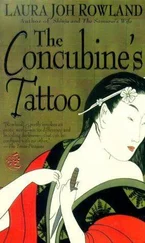Laura Rowland - The Incense Game
Здесь есть возможность читать онлайн «Laura Rowland - The Incense Game» весь текст электронной книги совершенно бесплатно (целиком полную версию без сокращений). В некоторых случаях можно слушать аудио, скачать через торрент в формате fb2 и присутствует краткое содержание. Жанр: Исторический детектив, на английском языке. Описание произведения, (предисловие) а так же отзывы посетителей доступны на портале библиотеки ЛибКат.
- Название:The Incense Game
- Автор:
- Жанр:
- Год:неизвестен
- ISBN:нет данных
- Рейтинг книги:3 / 5. Голосов: 1
-
Избранное:Добавить в избранное
- Отзывы:
-
Ваша оценка:
- 60
- 1
- 2
- 3
- 4
- 5
The Incense Game: краткое содержание, описание и аннотация
Предлагаем к чтению аннотацию, описание, краткое содержание или предисловие (зависит от того, что написал сам автор книги «The Incense Game»). Если вы не нашли необходимую информацию о книге — напишите в комментариях, мы постараемся отыскать её.
The Incense Game — читать онлайн бесплатно полную книгу (весь текст) целиком
Ниже представлен текст книги, разбитый по страницам. Система сохранения места последней прочитанной страницы, позволяет с удобством читать онлайн бесплатно книгу «The Incense Game», без необходимости каждый раз заново искать на чём Вы остановились. Поставьте закладку, и сможете в любой момент перейти на страницу, на которой закончили чтение.
Интервал:
Закладка:
Sano didn’t know what was going on with Hirata, but he didn’t like it. “Have you found anyone alive?”
“Not in the past few days. Just bodies,” Hirata said.
Although Sano had every right to demand a true account of Hirata’s actions and order Hirata to attend to his duties and punish him if he neglected them, Sano didn’t. They were more than master and retainer; they were old, close friends, and Sano owed Hirata his life. Hirata had once taken a blade meant for Sano and almost died. Sano wasn’t the kind of master who would take that for granted. He would have to confront Hirata eventually, but now, when there were so many more important problems to address, wasn’t the time.
“Where are you going?” Hirata asked.
“On a tour of inspection. The shogun wants me to bring him some good news.”
Sano and Hirata looked around at the ruins. Expressionless, they looked at each other. Then they burst out laughing. Finding good news for the shogun seemed so ludicrously impossible, it was funny. Sano’s men laughed, too, except for Detective Marume.
Humor quickly fled as they rode through the townspeople’s quarters. Survivors picked through leveled neighborhoods, looking for anything salvageable. Water-sellers roved, their buckets suspended from poles on their shoulders. The prices they called out were exorbitant, but people paid. Sewage and debris clogged the canals, wells had been blocked by shifts in the rock underground, and the system of wooden pipes that channeled water from the hills had been damaged. Clean water was at a premium.
In the intact areas, a few shops and market stalls had reopened. Long lines of people waited at each. Merchants lucky enough to have goods left to sell demanded prices ten times higher than usual, making fortunes off the earthquake. Crowds gathered on the Nihonbashi River banks as a lone fishing boat docked. Many other boats had sunken or burned. Fights over the catch broke out. Army troops tried to keep order. Sano and his men rode through areas that had burned into deserts of black timbers. Soot drifted; the air reeked of smoke.
Along the banks of the Sumida River floated remains from warehouses and docks. Soldiers stood around the few existent warehouses, guarding the rice that the regime paid out as stipends to its retainers. The rice normally fed thousands of samurai and their households, and the surplus was sold to merchants for cash that funded the government; the townspeople consumed the surplus rice. But much of it had been swept into the river during the earthquake or burned up in the fires. Hungry citizens clamored outside the warehouses. Food riots were becoming frequent.
Where the Ry o goku Bridge’s high wooden arch had once connected the city with the opposite shore, only a few pilings jutted up from the water. This was the site of one of the earthquake’s worst disasters. Fleeing crowds had massed so tightly on the bridge that they were stuck. The bridge had collapsed under their weight. Hundreds of people had drowned in the river, which had been heated almost to a boil by burning debris.
“We’ve seen enough for now,” Sano said quietly.
They headed back to the castle, through an area crisscrossed by huge cracks that had swallowed entire houses. Townspeople who wore cloths over their faces, thick cotton gloves, and leather boots climbed down into the cracks, searching for victims. Decayed, stinking corpses lay on the street. Sano felt nausea turn his stomach. He doubted that anyone could still be alive underground, but he couldn’t help hoping so. He jumped off his horse and said, “Let’s help.”
He and Hirata and their troops joined the townsmen in lifting heavy roof beams off a wide chasm. The townsmen removed their cloth masks to cool their perspiring faces. A sweet odor wafted up from the darkness underground.
“Is that incense?” Sano asked.
“Yes.” Hirata’s nostrils flared as he employed his keen sense of smell. “There are people down there, but they don’t smell dead.”
The hope of rescuing survivors spurred the group to work faster. They cleared a hole above a room in which three women lay curled on their sides. Diarrhea stained their vividly colored robes and the tatami around them. One woman’s hair was streaked with gray, the others’ glossy black. Vomit crusted their mouths. But the skin on their faces, and their outstretched hands, was unmarked by decay. Their eyes were open.
“They’re alive!” exclaimed a young townsman with bristly hair. He squeezed through the hole feetfirst, without putting on his mask. He jumped down to the room, calling to the women, “Hey, we’re here to save you!”
They neither answered nor moved. Sano and Hirata frowned in puzzlement.
The townsman touched the women’s bodies. Recoiling, he cried, “They’re all dead! And their eyes! What is this?” He thrust his hands up and yelled, “Get me out of here!”
His comrades pulled him up. He sat on the ground, panted, and babbled. Sano and Hirata flung away more beams until the entire room was exposed. Now they saw what had frightened the young man. The dead women were eerily, disturbingly well preserved, their eyes a bright, gleaming red. The other townsmen exclaimed in shock.
Concern, curiosity, and the instincts honed by fifteen years of detective work compelled Sano to say to Hirata, “We’d better investigate this.”
The townsmen inserted a ladder into the hole. Sano and Hirata descended. Seen up close, the women’s condition was even more unnerving. Their eyes looked as if fresh blood filmed the irises and whites. Their skin was as fresh as life, their makeup smooth.
“Something prevented them from rotting,” Hirata said.
Sano bent to examine each woman. “They don’t seem to have been injured.”
“What killed them, then? Underground gases?”
“I don’t know.” Sano turned his attention to items on the floor-writing brushes and paper, inkstones and cakes of black ink, small jars for water. The gray-haired woman had a charcoal brazier, green paper packets, metal chopsticks, and silver tweezers by her. A celadon ceramic bowl of ashes lay tipped on its side.
“They were playing an incense game,” Sano said.
Incense games originated from a tradition called kodo, the art of incense, that had begun more than a thousand years ago. A great industry for formulating and manufacturing incense had grown up in Nara and Kyoto. Incense-makers procured ingredients from around the world-Japanese camphor, pine, and magnolia wood; frankincense from Arabia; clove and nutmeg from Java; patchouli, sandalwood, and cinnamon from India; cedarwood and star anise from China; ambergris from sperm whales; musk from Himalayan deer. They ground the ingredients, blended them with honey and oil, and shaped the mixture into sticks or pellets. The emperor’s court ladies perfumed their hair and their kimonos with incense, which also became an important element of religion.
At Buddhist temples priests lit incense sticks that symbolized the Buddha. Shinto priests offered incense to the spirits at every shrine. The sweet smoke rose from earth to heaven, summoned the deities to hear prayers, facilitated meditation and trances, led the souls of the dead to the netherworld. Incense had practical applications, too. Some incense blends were stimulants, sleep aids, or aphrodisiacs. It was also used to fumigate diseased places, mask body odor, and sweeten the smell of cremation.
The samurai class had embraced kodo. During the civil war era that had ended a century ago, samurai going into battle carried pouches of incense around their necks, to help their spirits find their way to heaven if they died. Today, kodo was a fashionable hobby. Cultured folk from all classes employed incense experts to teach them how to blend and appreciate incense. Games were an important aspect of kodo. They had elaborate rules by which players burned incense samples, smelled the smoke, and attempted to guess what type they were. The games weren’t really competitions; winning mattered less than sharing the enjoyment of the incense.
Читать дальшеИнтервал:
Закладка:
Похожие книги на «The Incense Game»
Представляем Вашему вниманию похожие книги на «The Incense Game» списком для выбора. Мы отобрали схожую по названию и смыслу литературу в надежде предоставить читателям больше вариантов отыскать новые, интересные, ещё непрочитанные произведения.
Обсуждение, отзывы о книге «The Incense Game» и просто собственные мнения читателей. Оставьте ваши комментарии, напишите, что Вы думаете о произведении, его смысле или главных героях. Укажите что конкретно понравилось, а что нет, и почему Вы так считаете.
